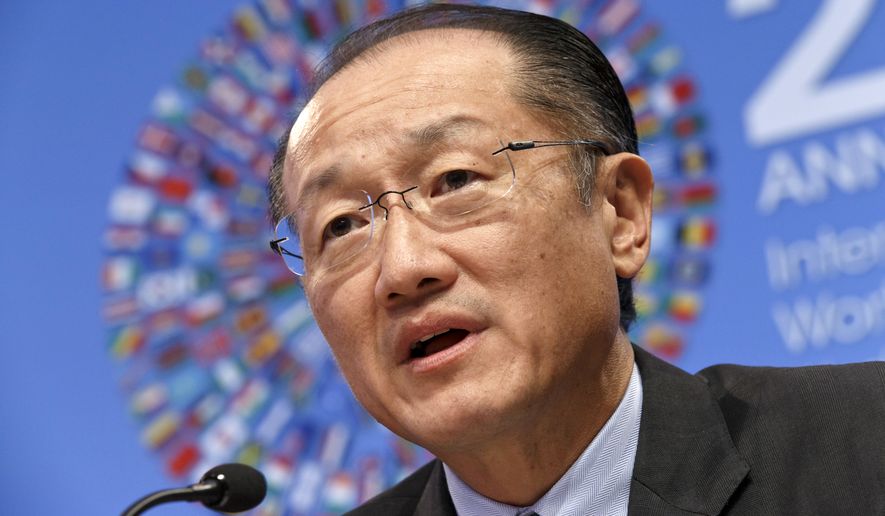Count the American head of the World Bank as one more major player ignoring Obama administration concerns to say he welcomes the creation of a major new China-sponsored development bank to fund infrastructure projects across Asia.
World Bank President Jim Yong Kim told a Washington forum Tuesday morning that he does not see the proposed Asian Infrastructure Investment Bank (AIIB) as a rival to existing institutions such as the World Bank and the Asian Development Bank, saying the need is far greater than any one institution can meet these days.
“My goodness, we have so much need for infrastructure that we would welcome any new player,” said Mr. Kim, who was president of Dartmouth College when President Obama tapped to head the World Bank in 2012.
The World Bank chief previously has signaled his openness to China’s planned bank, but this was his most extensive and explicit comment to date. He said the Washington-based World Bank also is prepared to work with the New Development Bank formed last year by the “BRICS” countries — Brazil, Russia, India, China and South Africa.
“We estimate that the world needs an additional [$1 trillion to $1.5 trillion] every year to be invested in infrastructure,” Mr. Kim told an audience at the Center for Strategic and International Studies. “I will do everything in my power to find innovative ways to work with these banks.”
Despite deep reservations and diplomatic pressure from the Obama administration, nearly four-dozen countries have signed on as founding members of the AIIB, including such longtime U.S. allies as Britain, Germany, South Korea, Australia and Israel. U.S. officials argue that new bank, backed in part by $50 billion in seed money from China, could duplicate work being done by existing multilateral lenders and undercut international standards on such issues as the environment and corruption.
SEE ALSO: Efforts to head off China development bank called a failure
But other countries rushed in recent months to be a part of the Chinese-led bank, and the only major economies not participating right now are the United States and Japan.
Mr. Kim said the World Bank has a strong relationship with Beijing and had been in conversations with Chinese officials as the AIIB took shape. Chinese officials say they hope to have the bank’s charter written and in place by the end of the year.
Echoing U.S. officials, Mr. Kim said he would be watching as the AIIB takes shape, but appeared to fully welcome its role in helping finance trillions of dollars of projected infrastructure programs across the booming Asian region.
“The fundamental issue for us is — your enemy cannot be other institutions. Your enemy has to be poverty,” Mr. Kim said. “And if your enemy is poverty, the natural thing is to welcome any new players interested in developing the infrastructure that will end poverty.”
The World Bank and the International Monetary Fund, the pillars of the global financial system largely built by the U.S. after World War II, will be holding their annual Washington spring meetings next week.
Many say the failure of the U.S. Congress to ratify an IMF reform plan that gives rising economic powers such as China and India a greater say in IMF decisions is fueling efforts to challenge the dominance of the current international financial institutions.
SEE ALSO: Obama humiliated as allies join China’s Asian Infrastructure Investment Bank
The U.S. may soon be alone among major economies as more countries sign on to help capitalize the AIIB, which is expected to have about $100 billion to lend when it opens. According to Japanese press reports, the government of Prime Minister Shinzo Abe is discussing a $1.5 billion contribution if the new bank meets certain criteria on transparency and neutral screening of progress.
Officials in Tokyo say Japan will make a decision on membership by the end of June, the Nikkei Asian Review reported Tuesday.
Despite U.S. reluctance to endorse the AIIB, Mr. Kim said his approach is that all hands are needed on deck to end poverty and keep the global economy humming.
“The decisions we make this year, and the alliances we form with other institutions in the years ahead, will help determine whether we have a chance to reach our goal of ending extreme poverty in just 15 years,” he said.
• David R. Sands can be reached at dsands@washingtontimes.com.




Please read our comment policy before commenting.